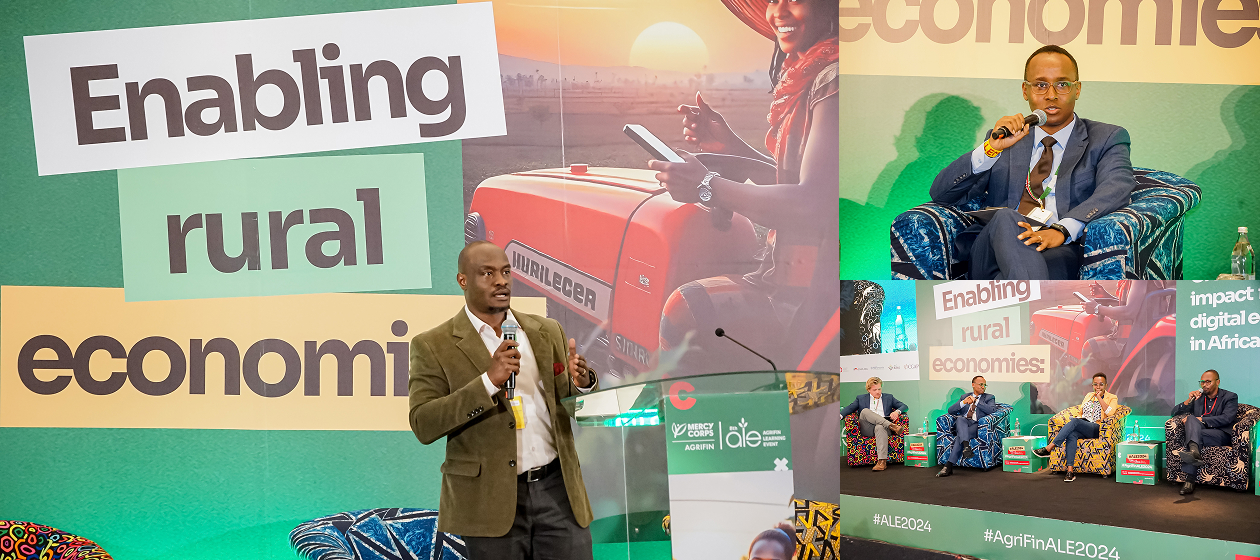AI in Agriculture: Time for a Nutrition Label?

The 8th AgriFin Learning Event, themed "Enabling rural economies: Creating lasting impact for the digital ecosystem in Africa," was a vibrant hub of discussion, particularly around the sub-theme "Towards a Sustainable Agricultural Information Service." Our Founder and CEO, David Lemayian, participated in the "AI in Agriculture leads the innovation in localization for Africa," session that set the stage for exploring AI's transformative role, with a strong focus on the African context. The consensus? The potential is immense, but realizing it responsibly requires transparency and a deep understanding of the technology's underpinnings.
Throughout the event, from keynote presentations by Sriram Gollapalli of Kuza One and Sukirti Patnaik of Pula, to deep dives into systemic challenges by Aisha Walcott-Bryant of Google, and showcases of localized solutions by ICIPE, IGAD, and Usiku Games, a clear message emerged: AI in agriculture is rapidly evolving. We heard about AI-driven crop development, forecasting extreme events, and even using AI to interpret insect sounds for pest control.
However, amidst this wave of innovation, a critical question surfaced, echoing points made by panelists like Dr. Njeri Ngaruiya Ng'ang'a of Strathmore University during the "Collaborative Panel: Scaling Localization Efforts for AI in Agriculture": If AI is to be a trusted tool, shouldn't we know what's "inside" it? This brings us to a compelling idea: Does AI in Agriculture need a "nutrition label"?
When we choose our food, we look for information on its ingredients, origin, and nutritional value. Similarly, for AI tools that will shape farming decisions and livelihoods, a "nutrition label" could provide crucial transparency:
- Data Origins & Context (The "Ingredients"): The agenda itself emphasized the need for localized AI solutions tailored to Africa's diverse landscapes, languages, and agricultural practices. An AI "label" should clarify if its training data is globally sourced or fine-tuned with region-specific African data. Is it truly localized, as the session objectives urged, moving beyond "one-size-fits-all"?
- Algorithmic Purpose & Limitations (The "Serving Suggestion" & "Allergy Warnings"): What specific agricultural challenge is the AI designed to address? Crucially, what are its known limitations or potential biases? This aligns with the event’s aim to "Understand the Opportunities and Challenges of AI in African Agriculture."
- Ethical Considerations & Inclusivity (The "Fair Trade" & "Dietary Information"): How does the AI cater to diverse agricultural environments and farming practices, including those of women and marginalized groups? Ensuring equitable access and benefit, and addressing biases in datasets, as discussed in the context of data collection by Oscar Otieno from the Office of the Data Protection Commissioner, is paramount.
- Intended Use & Maintenance (The "Best Before" Date): AI models are not static. Their "label" should indicate the freshness of their underlying data and when they might require updates or retraining to remain effective and avoid perpetuating outdated information.
The insights from early AI implementations, a key objective of the event, are vital. As stakeholders – governments, the private sector, researchers, and NGOs – collaborate to drive localization, understanding the "nutritional content" of AI solutions becomes non-negotiable.
Finally, at the heart of these discussions lies a fundamental truth: for AI to truly empower African agriculture, its development must be rooted in transparency, user-centricity, and rigorous, contextually-aware research. The call for something akin to a "nutrition label" isn't about stifling innovation; it's about cultivating it responsibly. It's about building trust and ensuring that the AI solutions we champion are genuinely nourishing for the farmers and food systems they are designed to serve.
At Tenery Research, we champion this ethos. For AI to be a true catalyst for African agriculture, its foundation must be transparency, rigorous context-specific research, and a deep commitment to the end-user. The call for an AI "nutrition label" is a call for a more informed, ethical, and ultimately, more impactful future.